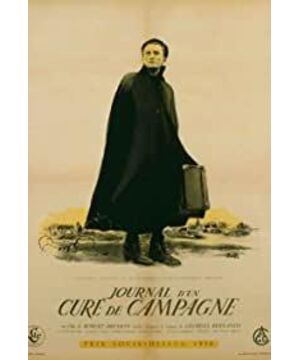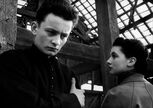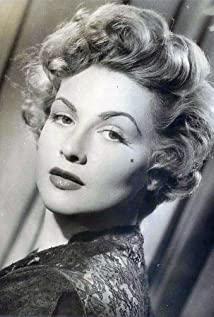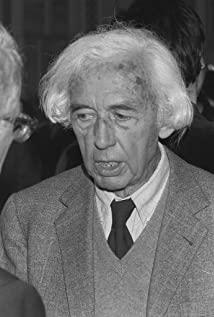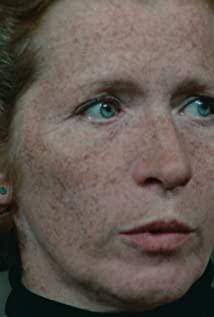As a director, Bresson has all the characteristics of the "Bresson style" at this time. The sound and the picture always alternate, chasing each other. The voice of the character appears first, and then the person who speaks or the eyes of the character are shot. First show the content of concern, voice over and then follow up and explain; there are also close-ups of hand movements that he particularly likes... In short, Bresson will always only show you a part of the space, or the sound, the picture, or the part of the human body. He is very Knows the art of omission, knows how to manipulate the relationship between the inside and outside of the screen, and knows how to extend the things in the lens, so although his film is not fast (it gives the audience an illusion of reading), you always have expectations, always have Time to think. Most of the film's shots are close-up (above the character's chest), or pushed from the middle to the close-up. I didn’t know that such dense close-ups would give people a very depressing feeling, because you would focus on paying attention to the expressions of the characters, and each expression of Bresson’s characters has a specific meaning, staring at all kinds of expressions. Looking at all kinds of faces, it feels like being surrounded by all kinds of thoughts. Isn't this what the little priest feels like? I particularly like an editing: the little priest walks back and forth, sadly flapping the drying quilt, this picture fades out, the picture of snow flakes fades in, the camera moves closer to the window of the little priest’s room, he is writing a diary... During the alternation of the shots, the voice-over Without stopping, the overlay of the quilt and the snow flakes is as if the quilt is out of cotton, the whole transfer is beautiful and natural, and the emotions are coherent. Even though I feel that the spiritual connotation of this film is completely confined in the original work, and even out of religious enthusiasm, the protagonist is described as too tragic and tragic, and I did not add more active thinking like the later "Morchat", but I must be amazed. Bresson’s talent for director.
View more about Diary of a Country Priest reviews


